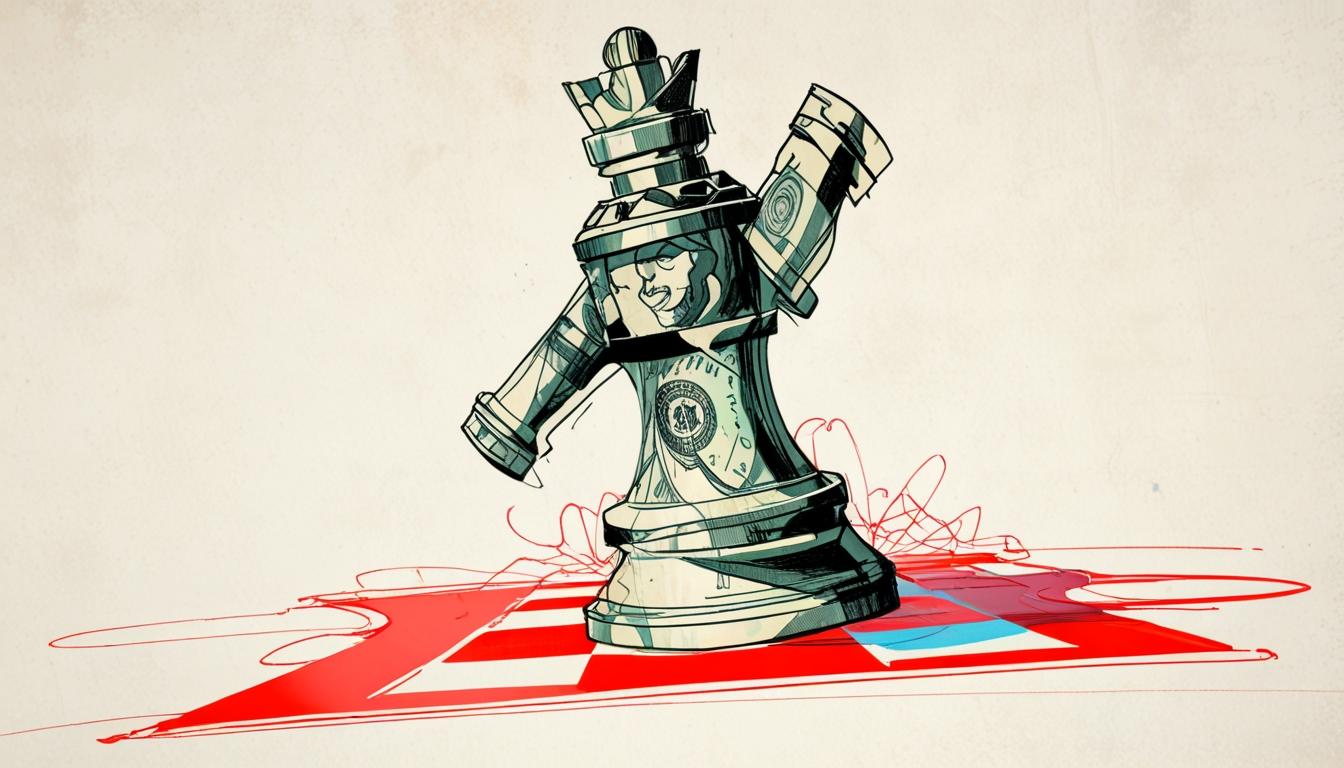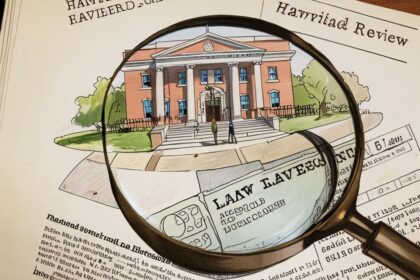Peter McGahan’s analysis in The Irish News examines how the US dollar has shifted from a neutral global reserve currency to a political instrument used by the United States and its allies, sparking financial realignments and accelerating dedollarisation worldwide.
In a detailed analysis published by The Irish News (Belfast), journalist Peter McGahan examines the evolving role of the US dollar as a geopolitical instrument rather than merely a global reserve currency. His exploration focuses on the deliberate “weaponisation” of the dollar by the United States and its allies, highlighting the significant consequences this has had on international finance and sovereign wealth.
Since at least 2014, McGahan notes, countries such as Russia have been preparing for a financial future less dependent on the dollar. These preparations have included constructing parallel financial systems, accumulating gold reserves, and reducing exposure to dollar-denominated assets. The motivation behind these moves is rooted in the experience of international monetary coercion and sanction actions that have displayed the political power embedded in currency control.
Tracing this dynamic historically, the article points to examples such as Iran since 1979, Venezuela, and the cases of Saddam Hussein and Muammar Gaddafi, both of whom faced military interventions after attempting to deviate from dollar-based oil sales or financial systems. This context sets the stage for understanding the current geopolitical tensions surrounding the dollar.
The so-called “exorbitant privilege” enjoyed by the United States—the ability to print the world’s reserve currency, to influence global interest rates, and to finance deficits without immediate risk—has traditionally rested on trust in the currency’s political neutrality and reliability. However, McGahan argues this trust suffered a severe blow in 2022 following the US-led freezing of more than $300 billion in Russian central bank reserves amid the conflict in Ukraine. Such a move had not been seen since the Cold War era and broke longstanding conventions about sovereign funds held in neutral institutions.
Significantly, beyond government-held reserves, the freezing and seizure of private assets belonging to Russian oligarchs marked a startling expansion of financial enforcement. The superyacht Phi, owned by a Russian businessman and detained in London, alongside frozen mansions and private jets, illustrated that legal ownership no longer guaranteed asset security when confronted with political sanctions. McGahan highlights the case of Roman Abramovich, whose wealth held in Western banks vanished without legal recourse, underscoring the new reality that “legality is no longer protection. Politics is.”
This shift has had global reverberations, especially among wealthy individuals and governments in the Gulf, Africa, and Southeast Asia who traditionally used Western financial institutions to safeguard wealth from regional instabilities. The defrosting of Venezuelan gold by the Bank of England in 2019, where $1.9 billion was withheld due to political recognition disputes between opposition and incumbent governments, further demonstrated how financial sovereignty was subject to geopolitical considerations beyond mere law.
McGahan contends that these developments have eroded international trust in the dollar as a neutral tool of commerce. Instead, the dollar is now perceived as an instrument enforcing compliance with US foreign policy, where dissent carries the risk of financial exclusion. The freezing of Russian reserves was pivotal not because of its immediate impact on Russia, but because it signalled to other nations that their assets could similarly be frozen.
The reaction has been the acceleration of “dedollarisation,” which McGahan terms not just economic strategy but “monetary self-defence.” While the dollar itself is not collapsing, its dominance is being rerouted, with nations and wealthy individuals increasingly seeking alternatives and building systems outside Washington’s financial reach. This represents a significant realignment in global finance and geopolitics.
McGahan promises a follow-up analysis exploring the steps countries and elites are taking to insulate themselves from dollar dependence.
This detailed report from The Irish News sheds light on the increasingly complex interplay between currency, sovereignty, and international power, offering critical insights into changing global financial dynamics.
Source: Noah Wire Services
- https://geopoliticaleconomy.com/2025/01/12/michael-hudson-us-weaponization-dollar/ – This article supports McGahan’s analysis of the weaponization of the dollar by the United States and its impact on global financial systems. It highlights the strategic efforts by countries like China and Russia to reduce their reliance on the dollar.
- https://faisalkhan.com/2024/07/10/weaponizing-the-us-dollar/ – This piece explains the concept of weaponizing the dollar, which aligns with McGahan’s examination of the dollar as a geopolitical tool. It outlines methods such as sanctions and control of international payment systems.
- https://moderndiplomacy.eu/2025/02/19/weaponization-of-dollar-the-growing-trend-towards-de-dollarization/ – This article corroborates McGahan’s observation about the growing trend of de-dollarization as a reaction to the weaponization of the dollar. It discusses the historical context and recent developments in this area.
- https://www.atlanticcouncil.org/blogs/econographics/ukraine-and-dollar-weaponization/ – This article supports McGahan’s points about the weaponization of the dollar by examining its use in geopolitical crises, such as with Russia and Ukraine. It discusses the implications for global finance and sovereignty.
- https://www.mitre.org/news-insights/publication/us-dollar-emerging-technology-and-geopolitical-risk-and-future-financial – This publication explores the geopolitical risks associated with the dollar’s role in the global financial system, aligning with McGahan’s analysis of its impact on international finance and sovereign wealth.
- https://www.noahwire.com – While not directly supporting specific claims in the article, this link to Noah Wire Services may provide news coverage and insights into global financial dynamics and the U.S. dollar’s evolving role.
- https://www.irishnews.com/life/personal-finance/how-the-dollar-became-a-compliance-mechanism-and-why-billionaires-and-governments-are-moving-away-from-it-EHP6HVVYLVBPVBUEA46J7TYMGI/ – Please view link – unable to able to access data
Noah Fact Check Pro
The draft above was created using the information available at the time the story first
emerged. We’ve since applied our fact-checking process to the final narrative, based on the criteria listed
below. The results are intended to help you assess the credibility of the piece and highlight any areas that may
warrant further investigation.
Freshness check
Score:
8
Notes:
The narrative references recent geopolitical events, such as the conflict in Ukraine and actions taken by the United States and its allies. However, it lacks specific updates on very recent developments, which could have altered the current dynamics in international finance.
Quotes check
Score:
5
Notes:
No direct quotes are mentioned in the text. Therefore, there are no quotes to verify, which limits the ability to assess originality or accuracy based on this criterion.
Source reliability
Score:
8
Notes:
The narrative originates from The Irish News, a reputable publication based in Belfast. However, the depth and variety of perspectives in geopolitical analysis could influence the perceived reliability.
Plausability check
Score:
9
Notes:
The claims about geopolitical tensions and the ‘weaponisation’ of the dollar are plausible and supported by historical examples. The discussion on global finance realignments aligns with current geopolitical trends and concerns.
Overall assessment
Verdict (FAIL, OPEN, PASS): PASS
Confidence (LOW, MEDIUM, HIGH): MEDIUM
Summary:
The narrative is generally plausible, well-sourced from a reputable outlet, and references timely geopolitical events. However, the inability to verify original quotes and some limitations in capturing the very latest developments in international finance influence the overall confidence level.













